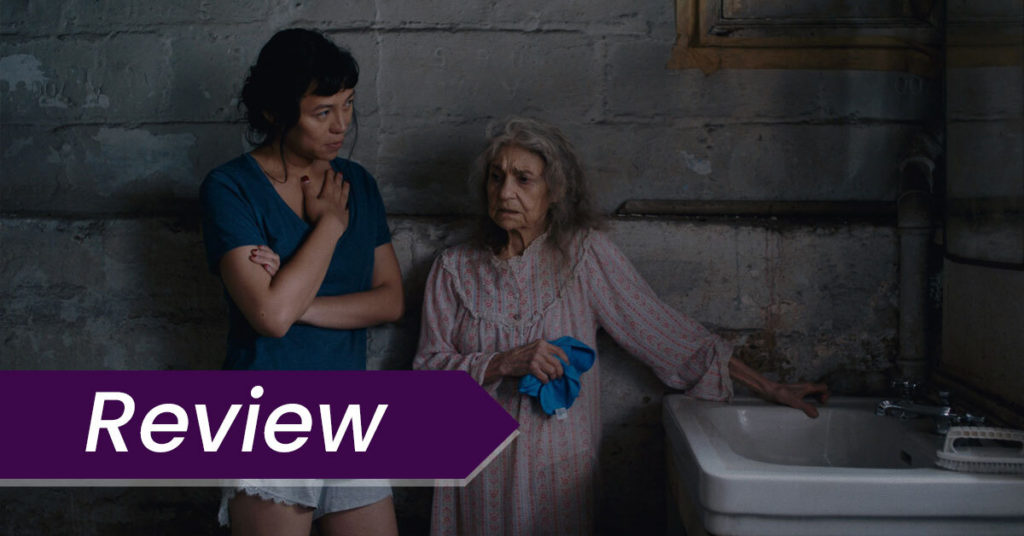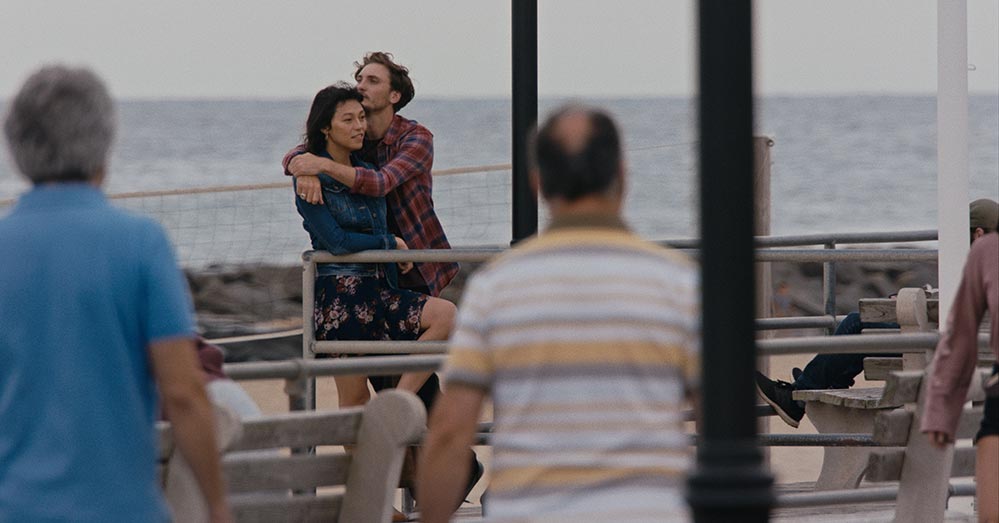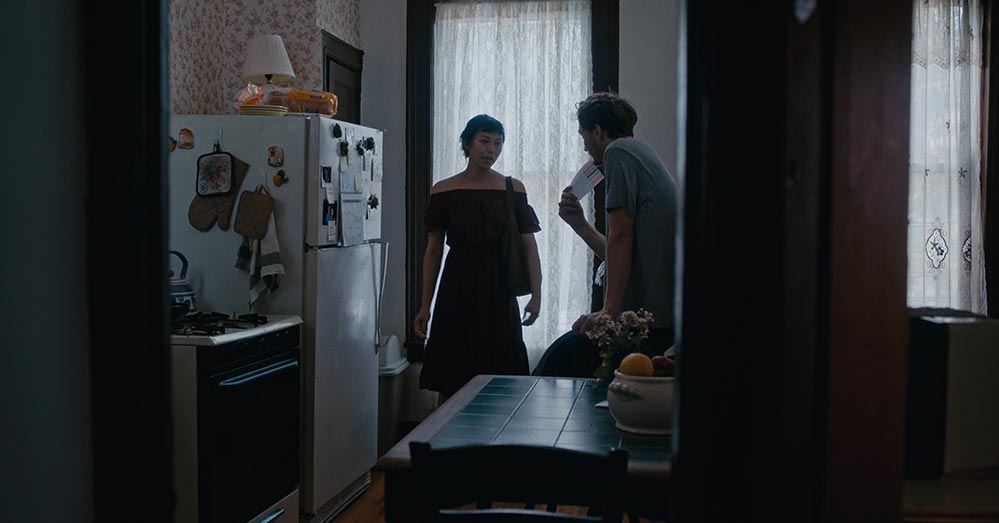Isabel Sandoval’s Lingua Franca patiently observes the day-to-day life of a trans, undocumented Filipina immigrant living in Trump’s America.

Actor-director Isabel Sandoval’s Lingua Franca provides a quietly subversive reframing of a trans woman’s experience. The film follows Olivia (Sandoval), an undocumented Filipina immigrant working in Brooklyn who is desperately trying to attain a green card while caring for an elderly Jewish-Russian woman, Olga (Lynn Cohen). She begins to form a relationship with the woman’s grandson, Alex (Eamon Farren), a troubled and dissatisfied young man who has taken a job at his uncle’s meat-packing business.
Lingua Franca is refreshing in how it subverts the often exploitative drama contained within the ‘trans reveal’ — whereby a character’s transgender identity is utilised as a punchline or a dramatic twist. This is an unfortunate trope that permeates so many cinematic depictions of transgender characters. An infamous example of this cliché is the shocking ‘twist’ in Neil Jordan’s The Crying Game (1992), revealing that the protagonist’s love interest is in fact transgender, a confession that is met with violent disgust. This contributes to a harmful fallacy that trans individuals are inherently deceptive. In Lingua Franca, Olivia’s transness is cruelly revealed to Alex by a boorish and drunken male friend who finds Olivia’s passport containing an old photograph. Rather than a dramatic confrontation between the couple, there is instead a beautifully shot scene of Alex and Olivia dancing where Alex tells Olivia, “I know, and I don’t care.” This subtle, heartfelt sequence is indicative of how Lingua Franca refuses to make a spectacle of Olivia’s identity or suggest that all of her fears and desires are intrinsically connected to her transness.

Trans representation has certainly become far more nuanced since The Crying Game but even recent films like The Danish Girl (2015) still very much fall into this trap. It’s a rather telling indictment of cinema’s treatment of trans women that Lingua Franca feels so groundbreaking. For example, Sandoval powerfully presents Olivia as an autonomous sexual being through scenes of masturbation and her raw physical encounters with Alex. These moments, while fleeting, are incredibly affirming, providing a cinematic space of safety and compassion that is free from the harsh reality of transphobic violence. Sandoval’s editing is economic, expressing much with very little and offering momentary glimpses into Olivia’s mostly solitary life. These brief snatches of a drunken karaoke party or Olivia’s walks to work are important because they allow for gentle mundanity rather than gruelling situations that are solely based around her transness.
The film’s visual language reflects the adversity many face within American society, especially marginalised individuals like Olivia. Cinematographer Isaac Banks very often shoots characters through restrictive doorways and windows, replicating the social limitations, judgement, and paranoia that is encroaching upon their lives. Also used to great effect are the snippets of radio shows and television programmes interspersed throughout the film, which position Olivia’s personal anxieties regarding deportation alongside the wider harshness of Trump’s America, so rife with bigotry and oppression.

Lingua Franca is most compelling as a series of still images, momentary glimpses, and portraits into otherwise unseen lives. However, it does not entirely function as a satisfying narrative. There’s significantly little rising action or incident as we simply follow Olivia and Alex at work, at home, or during their all too brief time spent with friends and family. The trajectory of their lives is not significantly altered by the places and people they encounter, creating characters who feel somewhat flat.
Moreover, due to the scarcity of dialogue, Alex and Olivia’s relationship with one another is more implied than depicted. Dreamy images of romance, such as the previously mentioned dance or a heady sequence of Alex and Olivia driving, are sadly the few scenes that we witness of the pair as a couple. The dialogue they do have together (and more generally throughout the film) can also occasionally feel laboured and clumsy, over-emphasising the bleakness of American society and the characters’ desperation, which is already effectively communicated through the film’s visuals.
Despite its flaws, there is much to admire in Lingua Franca’s sensitive depiction of a trans woman’s experiences, its assured visual storytelling, and its careful avoidance of tired tropes. It may lack narrative urgency or progression, but it is firmly grounded in reality. This is not a soapy romance about love against all odds; it’s a film that quietly traces the bleak, displaced, and unsatisfying lives at its centre.
Lingua Franca is now available on Netflix worldwide.


